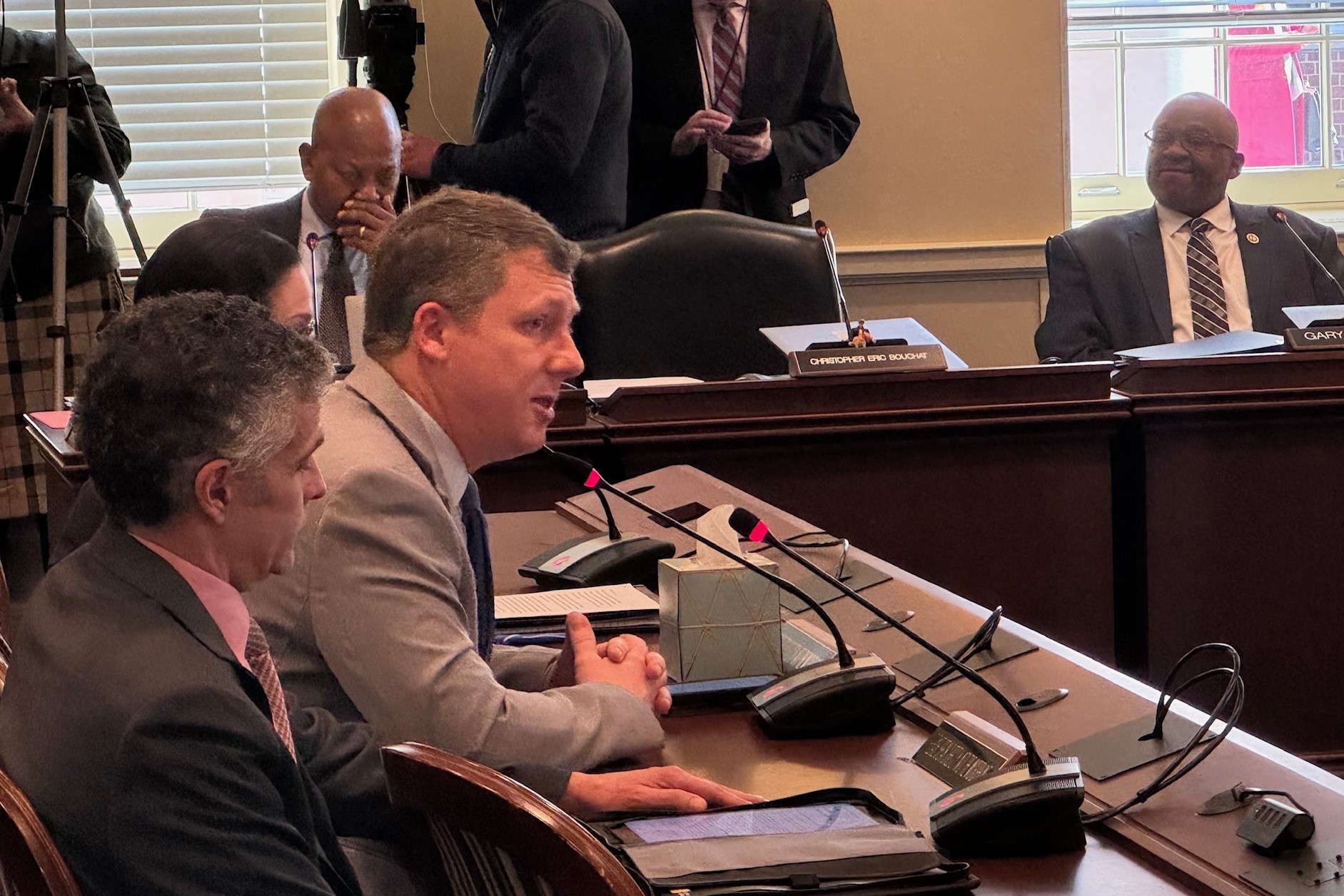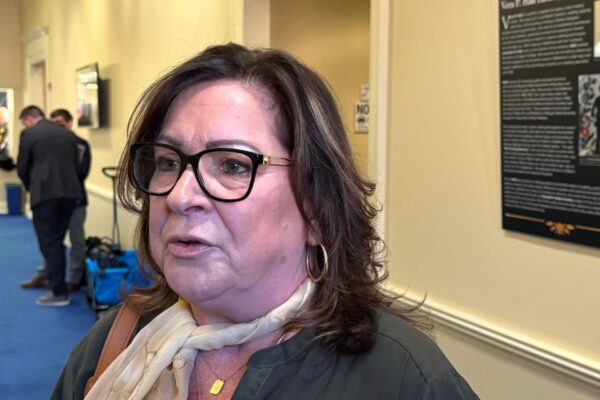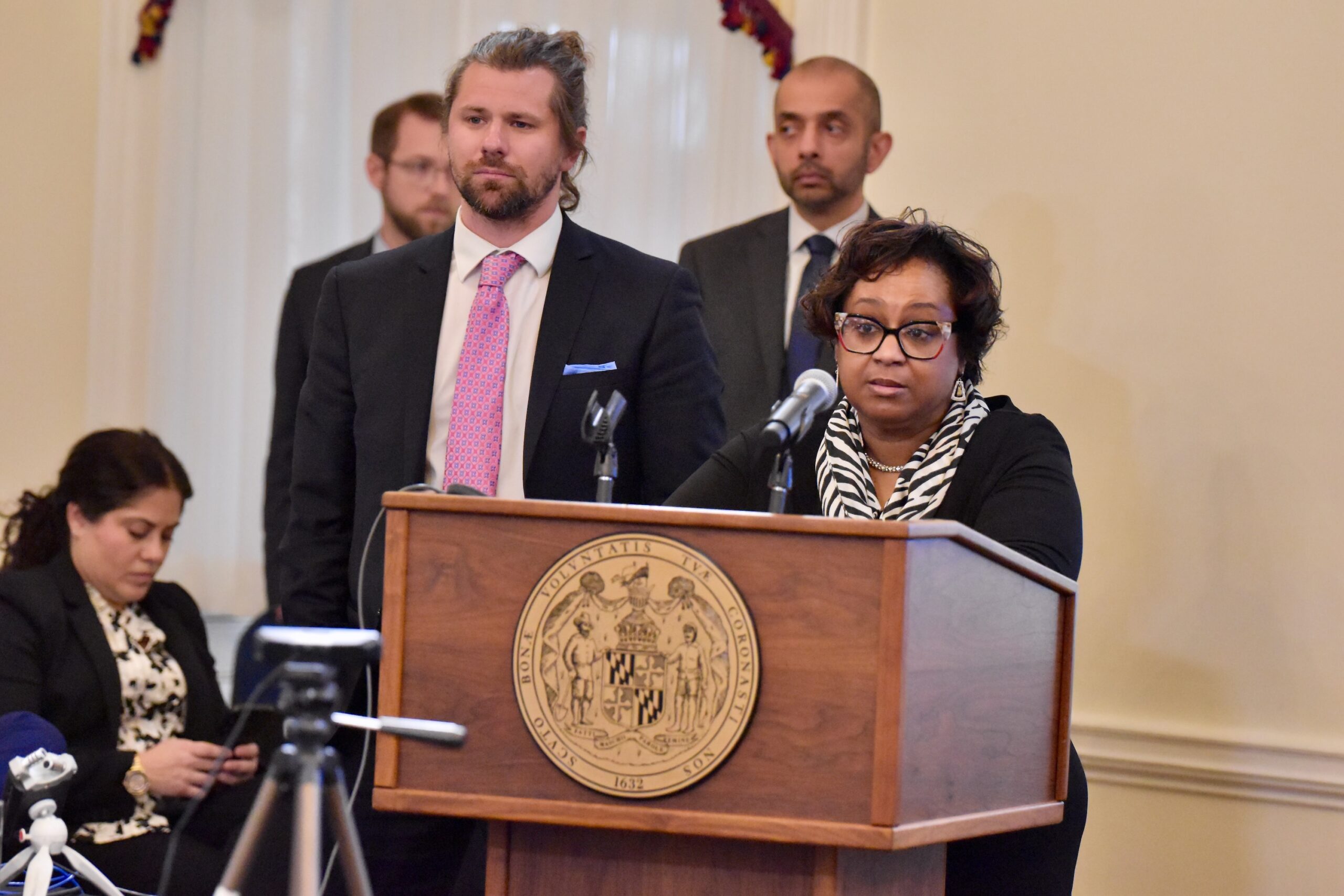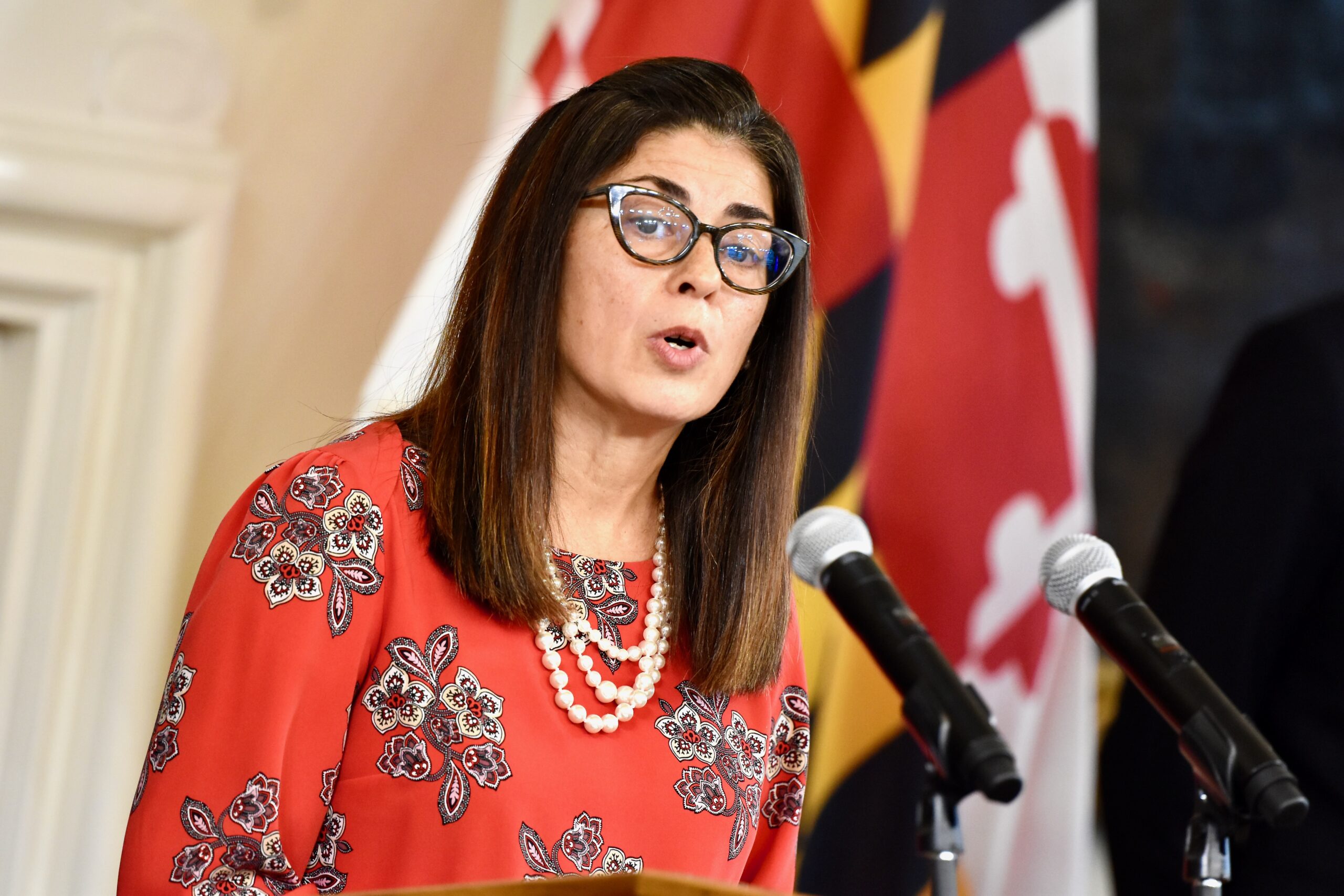House panel reviews public safety bills from Moore’s legislative agenda

The House Judiciary Committee reviewed proposals Tuesday focused on public safety and protecting elected officials.
The bills are part of Gov. Wes Moore’s (D) legislative agenda and come in response to increased threats and attacks, around the nation, on government officials as well as a shortage of law enforcement officers.
Eric Luedtke, the governor’s chief legislative officer, testified on House Bill 585 (Protecting Election Officials Act) that would create a new misdemeanor charge in state election law for threats against election officials or someone in their immediate family.
“They’re people who commit themselves to public service, to sustaining our democracy, despite too often low pay, and very long hours,” said Luedtke, who added that his wife worked as an election judge.
According to the legislation, election officials include state and local administrators of elections, members of state and local boards of elections, employees of state and local boards of elections and election judges. Immediate family members include a spouse, children and parents.
As defined in the bill, a threat can be made orally, by electronic communication or in any written form whether or not it’s signed “with a fictitious name or any other mark.” In the bill, harm includes serious injury or serious emotional distress.
The charge would be a misdemeanor and a person found guilty could be sentenced up to three years, be fined up to $2,500, or both.
Under current law, a person who interferes or hinders an election official who is performing official duties could be found guilty of a misdemeanor. The punishment could be a fine from $50 to $1,000, a sentence of up to a year in a jail, or both.
The state Office of the Attorney General wrote a letter of support but requested that the definition of election official be amended to include “counsel to a local board of elections or counsel to the State Board.”
“The Office of the Attorney General wants to ensure that our Assistant Attorneys General and local board of elections counsel, who are integral to the administration of the election process, enjoy the same protections as the other individuals already listed in House Bill 585,” wrote Adam Spangler, a legislative aide in the attorney general’s office.
Del. Nicole Williams (D-Prince George’s), a member of the committee and a co-sponsor of the legislation, asked if the requested amendment could be included in the bill.
“We would consider that a friendly amendment,” Luedtke said.
A fiscal note summarizes how 14 states enacted similar laws to protect election officials and poll workers since 2020.
Although there have been instances of intimidation in Maryland, they haven’t risen to levels of threats in some other states.
Ruie Marie LaVoie, director of the Baltimore County Board of Elections, said that during the 2022 election, a program manager received a text message with a picture of a rifle on a bed that, LaVoie said, was directed for her.

Ruie Marie LaVoie, director of Baltimore County Board of Elections, talks about the work of election officials after she testified before the House Judiciary Committee on Feb. 6, 2024. Photo by William J. Ford.
“Elections officials are the most committed people I know,” she said in an interview. “It’s very important that we protect the people that are protecting our democracy.”
No one testified against the measure.
‘A game changer’
Another proposal – House Bill 597 (Growing Apprenticeships and the Public Safety Workforce Act) – also received support during the committee session. The bill would reform the state’s existing apprenticeship programs to create a more viable pathway to law enforcement.
For instance, an apprentice who works in public safety for an agency such as a police department or correctional services could receive a grant up to $5,000 if that person is employed by the agency for at least seven months and enrolled in the apprenticeship program for a year.
The bill would also require the state’s Police Training and Standards Commission to develop mental health wellness policies that include stress management techniques, peer support and psychological programs.
The proposed fiscal year 2025 budget includes $750,000 toward the apprenticeship program, the same amount that is in this year’s budget for what is called the Law Enforcement Cadet Apprenticeship Program.
Clyde Boatwright, president of the state’s Fraternal Order of Police, said the legislation would help close gaps in recruitment and retention. He also proposed an amendment to allow “confidential peer support” between officers.
“We consider this is a game changer,” he said of the legislation.
Carolyn Scruggs, secretary of the state Department of Public Safety and Correctional Services, agreed.
“In order for our workforce to grow back stronger and more resilient, we must encourage the next generation of students to bring their talents to the communities around them and a career in public safety,” she said.
Victim compensation
The committee also heard support for House Bill 575 (Victim Compensation Reform Act), which would provide crime victims, their family members and loved ones faster access to money for immediate needs such as funeral and emergency relocation expenses.
However, criminal justice reform advocates, state’s attorneys and residents said that policies for receiving that money, managed by the Criminal Injuries Compensation Board, must be changed.
For instance, current law states a victim’s family must provide the compensation board with documentation that a crime “or delinquent act or the discovery of child abuse” was reported to a law enforcement agency or a court. In addition, they must demonstrate that a victim “has cooperated fully with all law enforcement units.”
The legislation would expand documentation that is accepted to support an application for paying victim’s expenses to include medical records that confirm a person’s injury from an alleged crime, as well as a peace or protective orders and sworn statements from qualified third parties. Qualified parties would be licensed physicians, psychologists, social workers, caseworkers, advocates or victim service providers from domestic violence or sexual assault prevention programs.
The bill would expand the definition of a “victim” to include a person who suffers “psychological injury as a result of crime or delinquent act.”
According to the fiscal note, the maximum amount for certain expenses would increase this way:
- Funeral expenses from $7,500 to $10,000.
- Psychiatric, psychological, or mental health counseling from $10,000 to $45,000.
- Repair, replacement or cleaning of property damaged as a result of a crime or law enforcement investigation of a crime from $250 to $2,000.
An online form or portal would also be created for families to apply for compensation.
Prince George’s County State’s Attorney Aisha Braveboy (D) and Baltimore State’s Attorney Ivan Bates (D) traveled to Annapolis in December and proposed injury compensation reform as part of a legislative package for this year’s session.
“It’s a board that no one wants to know about, but if you need it, you need to know that it’s there,” Braveboy said after she testified.




 Creative Commons Attribution
Creative Commons Attribution